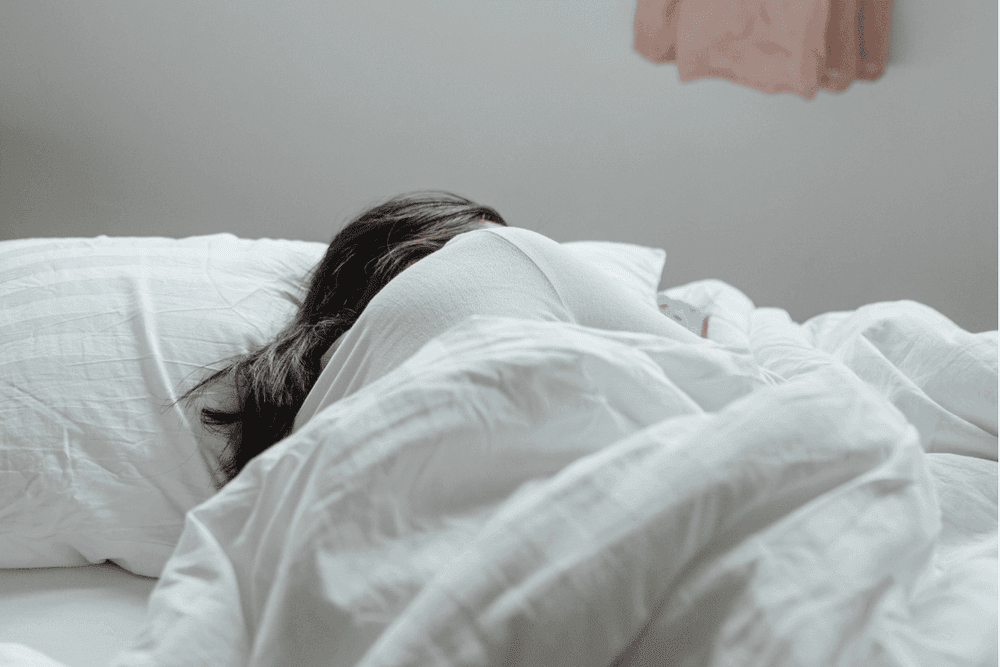Do You Need Mouth Taping for Better Sleep? Benefits, Risks, and How it Works

Do you or your spouse have trouble sleeping, or snore so loud that the neighbors are complaining? Mouth taping is an increasingly popular practice for many people trying to improve their sleep and reduce snoring. It involves taping your mouth closed during sleep to encourage nose breathing.
Good quality sleep is essential for a flourishing microbiome and overall health. Keep reading to learn about mouth taping for sleep, what the research says, and the potential risks of this unique practice.
What is Mouth Taping and How Does it Work?
Mouth taping involves taping your mouth shut at night in an attempt to reduce snoring and sleep apnea symptoms. The theory behind it is that it encourages nose breathing instead of mouth breathing, which is more often associated with snoring.
Sleeping with your mouth open can increase the risk of gum or dental disease, snoring, and bad breath. All of these unpleasantries can make a remedy such as mouth taping sound intriguing for some.
Mouth Taping Benefits
There are limited studies to prove mouth taping works, so most reported benefits have been anecdotal. It appears to be the most beneficial as a snoring remedy for those with sleep apnea.
One study showed mouth taping altered the angle of the palate and tongue in those with sleep apnea, leading to less snoring and fewer breathing lapses[1].
However, this study only included 30 people, so much larger studies are needed.
Mouth Taping Risks
Mouth taping may pose certain risks for those with obstructed nasal passages or allergies to the mouth adhesives used.
Those with untreated sleep apnea or allergies may have clogged nasal passages, whereby mouth taping could restrict airflow. This could lead to nighttime wakings and asphyxiation.
You can also develop an allergic reaction to the tape. This can worsen over time, leading to a rash on the face or lips.
Aside from physical risks, some may experience anxiety at the thought of taping their mouth shut.
Lastly, the skin on the lips is extremely fragile and sensitive. Many report that continuous taping can tear and damage the skin, leading to increased irritation, abrasions, tears and vulnerability.
Other Ways to Improve Sleep
Mouth taping may sound like a quick fix for your sleep woes, and it may work for some but may not necessarily be the best solution for everybody. Fortunately, there are other effective and less extreme methods available.
Breathing Exercises
Breathe deeply through your nose until your belly rises, then exhale out your nose while pulling your belly toward your spine. Doing this regularly may increase your ability to breathe through your nose over time.
OTC Allergy Medications
If allergies are to blame for your snoring troubles, ask your doctor about over-the-counter allergy medicines to open your nasal passages.
Nasal Strips
Nasal strips won’t cure breathing problems caused by sleep apnea, but they may lessen snoring. Place them over the nose before bed for a more comfortable way to open up your nasal passages.
Lifestyle Changes
Many unhealthy lifestyle habits can be the culprit behind snoring. Incorporate healthier habits such as quitting smoking, avoiding alcohol before bed, and cutting down on caffeine.
Limiting high-fat foods like full-fat dairy, red meat, and cheese can also reduce mucus and phlegm production in the mouth, making breathing easier and more comfortable[²].
If you’re curious about mouth taping or other ways to reduce your or your partner’s snoring, seek the advice of your medical doctor. Addressing the root cause of snoring is essential in order to properly manage it.
Getting quality sleep supports your health and well-being, and you deserve a peaceful night’s rest.
References
- Huang TW, Young TH. Otolaryngol Head Neck Surg. 2015 Feb;152(2):369-73. doi: 10.1177/0194599814559383. Epub 2014 Dec 1. PMID: 25450408.
- Bove C, Jain V, Younes N, Hynes M. Am J Lifestyle Med. 2018 Apr 27;15(3):305-312. doi: 10.1177/1559827618765097. PMID: 34025323; PMCID: PMC8120616.

